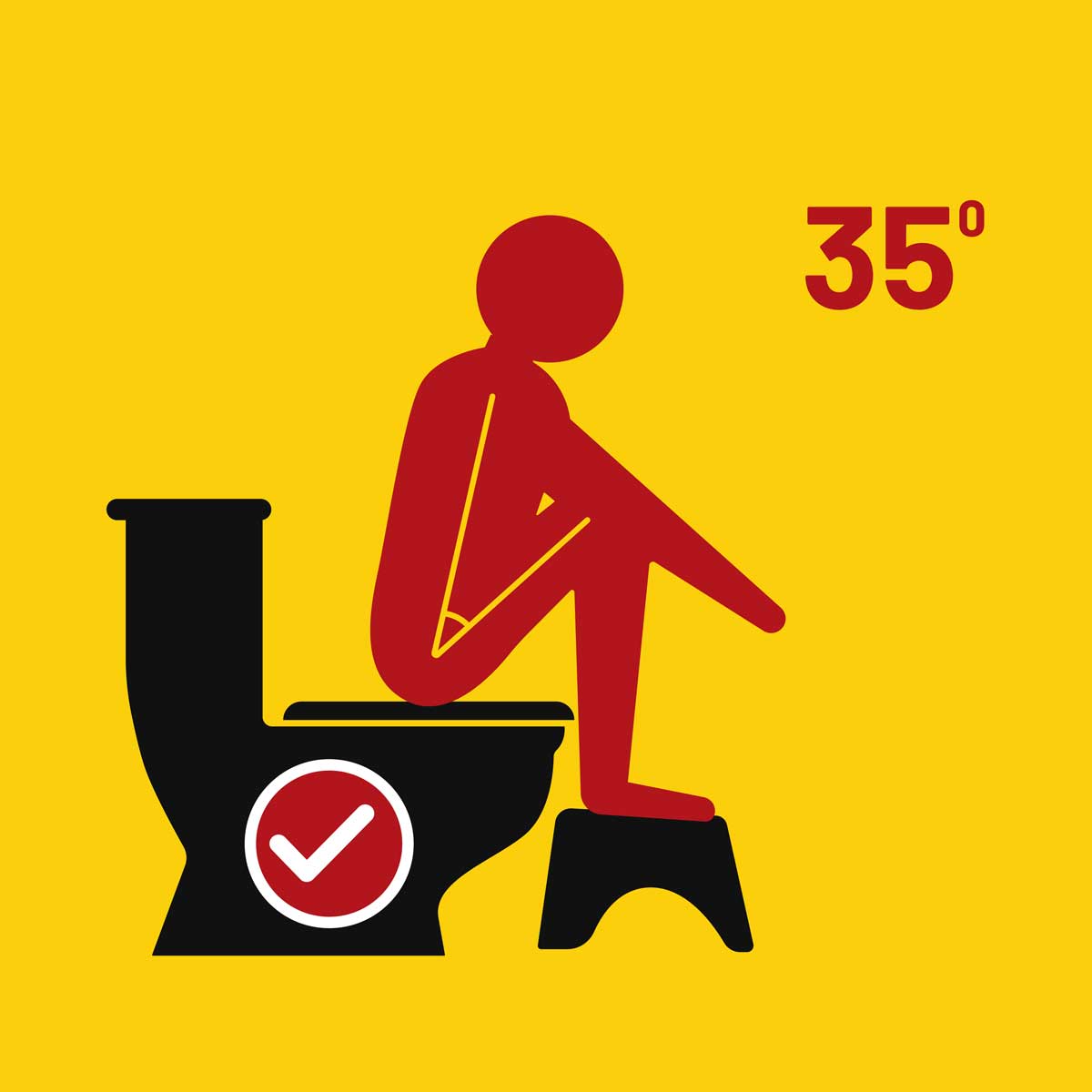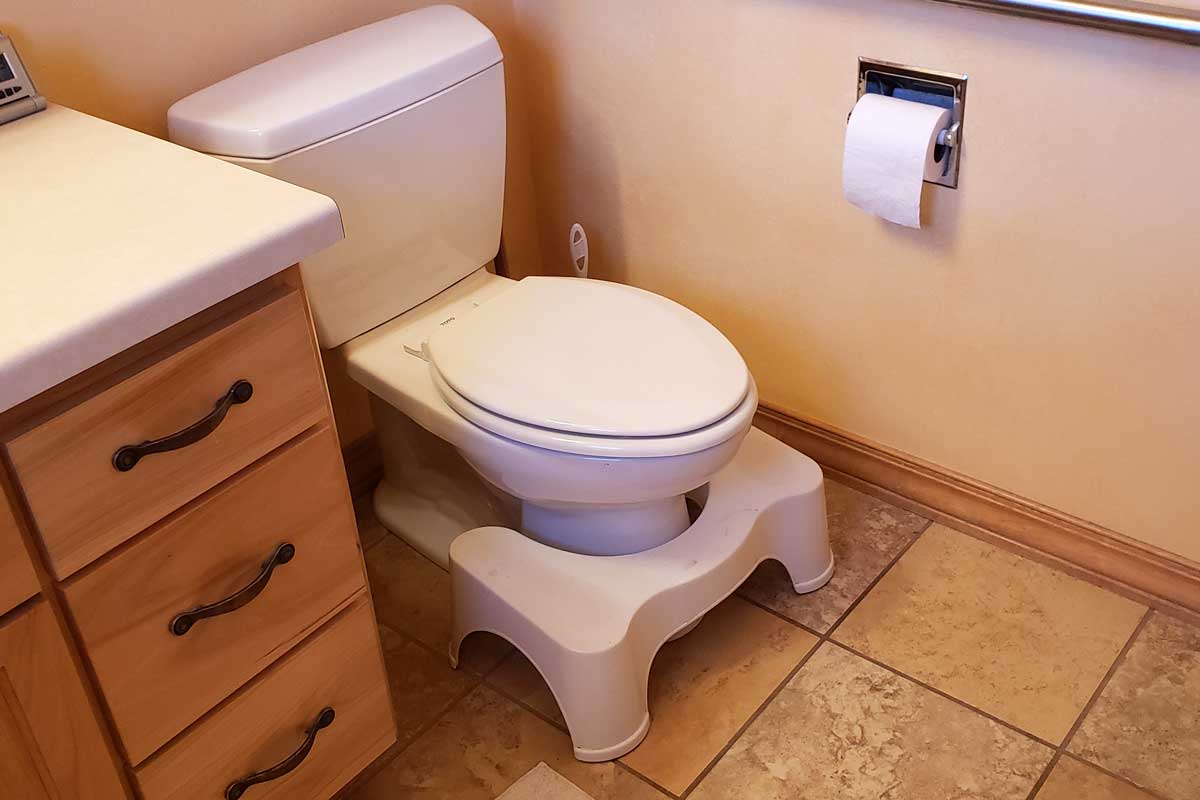10 Home Remedies for Constipation to Keep Things Moving
This post may contain affiliate links. Read my full disclosure here.
Constipation is a common problem, especially as we age. These home remedies for constipation can help restore bowel regularity. We include an explanation of how they work, how to use them, and when to avoid them or use caution.
Constipation is a marked by infrequent or hard-to-pass bowel movements, often leading to bloating, discomfort, and fatigue. While over-the-counter laxatives are effective, many people turn to natural remedies for gentler, longer-term support. (See “What’s a Healthy Bowel Movement” to help determine your BM status.)

Home Remedies for Constipation – Table of Contents
Before we get started, I’d like to mention one of the biggest causes of constipation – ultra processed food. More than half the calories consumed in the United States come from highly processed foods, and that is not good for anyone’s gut. Start with your diet if constipation is a chronic issue.
1. Get Enough Magnesium
Magnesium helps relax the muscles in the intestinal wall and draws water into the colon, making it a natural osmotic laxative. This supports smooth, regular bowel movements. Magnesium citrate is often used as a supplement for short-term constipation relief because it acts quickly and predictably.
Foods like leafy greens, nuts, seeds, and dark chocolate provide this essential mineral naturally. Magnesium also supports nerve function and may help reduce stress, which indirectly supports digestion. It’s my go-to home remedy for constipation.
Use coupon code “COMMONSENSE10” to get 10% off of magnesium citrate (and the rest of your order) at Perfect Supplements.
Home remedies:
- Eat magnesium-rich foods like bananas, greens, and almonds.
- Use magnesium supplements as needed.
When to avoid or use caution:
- Overuse can lead to diarrhea, electrolyte imbalances, or cramping.
- People with kidney disease should avoid supplementation unless monitored.
- Magnesium may interact with medications, including antibiotics and diuretics.
2. Physical Activity
Exercise increases blood flow to the digestive system and stimulates intestinal contractions, which help move waste through the colon. It also reduces stress, which can impact gut motility and function.
Even gentle movement, like walking or yoga, can encourage bowel movements. Regular physical activity also promotes better posture and abdominal strength, which can aid elimination.
Home remedies:
- Take daily walks or try light yoga and stretching.
Heads-up:
- Avoid intense workouts if you’re sick, injured, or recovering from surgery.
- Choose gentle movement if you’re new to exercise.
3. Stay Hydrated
Hydration is essential for healthy bowel function because water keeps stool soft and easier to pass. When the body is dehydrated, the colon absorbs excess water from the stool, leading to hard, dry waste.
Drinking adequate fluids ensures that fiber can do its job efficiently and that the digestive system stays lubricated. Warm fluids, especially in the morning, may gently stimulate bowel contractions.
Home remedies:
- Drink 8–10 glasses daily.
- Start your day with warm water and lemon.
When to avoid or use caution:
- Individuals with kidney disease, heart failure, or on fluid restrictions should consult a doctor before significantly increasing fluid intake.
4. Warm Lemon Water
For extra impact, opt for warm lemon water. The citric acid in lemon juice may stimulate gastric acid production and improve bile secretion, both of which aid digestion.
Warm water helps rehydrate the digestive system and may trigger the gastrocolic reflex—a natural urge to have a bowel movement after eating or drinking. This combination is especially useful in the morning when the digestive system is just waking up. It’s a gentle, accessible remedy that supports daily regularity.
Lots of people start their day drinking coffee to help them poop, but lemon water has other benefits, too. I drink lemon water most mornings, either warm or at room temperature, depending on the season. It also helps to clear congestion and anything left over from detox during sleep.
Home remedies:
- Drink a glass of warm lemon water in the morning on an empty stomach.
When to avoid or use caution:
- Acidic lemon juice may irritate tooth enamel or trigger acid reflux in sensitive individuals.
- Rinse your mouth afterward or drink through a straw to protect your teeth.

5. Herbal Teas
Herbal teas are another great option for soothing warm liquids. Certain herbal teas have natural laxative or digestive stimulant properties. Senna tea contains anthraquinones, compounds that irritate the lining of the bowel and trigger peristalsis.
Other teas, like peppermint and ginger, help relax intestinal muscles and reduce bloating, supporting more comfortable digestion. A warm cup of tea also increases fluid intake, which is essential for soft stools.
Home remedies:
- Drink a cup of herbal tea such as peppermint, ginger, or Senna (short term), .
When to avoid or use caution:
- Senna is a stimulant laxative and should only be used short-term to prevent dependence or electrolyte imbalance.
- Some herbs may interact with medications or be unsafe during pregnancy or breastfeeding.
- Licorice root tea can raise blood pressure in sensitive individuals
6. Try a Squatting Position
Our bodies are designed to eliminate more easily in a squatting position. When you sit on a regular toilet, your rectum stays slightly kinked, which can make it harder to pass stool. Squatting straightens the rectum and relaxes the puborectalis muscle, allowing for a smoother and more complete bowel movement.
Would you like to save this?

It’s one of the simplest ways to relieve constipation—no supplements or teas required. We have a Squatty Potty in every bathroom.
Home Remedies:
- Prop your feet up on a small stool (like a Squatty Potty) while sitting on the toilet to mimic a squat.
- Practice squatting daily when not on the toilet to help align your posture and GI tract.
When to avoid or use caution:
- If you have balance issues or mobility concerns, make sure your setup is stable.
- Don’t strain—this is about position, not pressure. Straining may contribute to hemorrhoids, and you don’t want that.

7. Probiotics and Fermented Foods
Probiotics are beneficial bacteria that support a balanced gut microbiome—essential for proper digestion and regular elimination. These bacteria help ferment undigested fibers, producing short-chain fatty acids (SCFAs) that stimulate colonic motility. Fermented foods like yogurt and kimchi naturally contain probiotics and enzymes that aid digestion. A healthy gut flora also reduces inflammation, which can improve symptoms of chronic constipation.
Home remedies:
- Eat yogurt, kefir, sauerkraut, or kimchi, or take a probiotic supplement.
When to avoid or use caution:
- People who are immunocompromised should avoid probiotic supplements unless approved by a doctor.
- Some fermented foods may cause gas or bloating.
- Choose plain, unsweetened options to avoid added sugars.
8. Prunes or Prune Juice
Prunes are a time-tested natural type of laxative due to their high fiber and sorbitol content. Sorbitol is a sugar alcohol that draws water into the intestines through osmosis. This act as a natural stool softener and stimulates peristalsis (intestinal movement).
Additionally, prunes contain phenolic compounds that may further stimulate the digestive tract. The combined effect helps relieve mild to moderate constipation without harsh chemicals.
Home remedies:
- Eat 4–6 prunes or drink a small glass of prune juice daily.
When to avoid or use caution:
- Sorbitol may cause gas, bloating, or diarrhea in those with sensitive guts or IBS.
Diabetics should monitor intake due to the fruit’s natural sugar content.
9. Increase Fiber Intake
Dietary fiber can increase stool bulk, soften stool, and stimulate bowel movement through the intestines.
There are two types of fiber. Insoluble fiber, found in foods like whole grains and vegetables, adds physical bulk to stool and speeds up its passage. Soluble fiber, found in oats, flaxseed, and legumes, absorbs water and forms a gel-like substance. This softens stool and helps it pass more easily.
Fiber also feeds your gut bacteria, which play a big role in keeping things regular—but here’s the twist: it can feed both the good and bad bacteria, depending on your gut health.
If your gut microbiome is out of balance—say, after antibiotics or a long stretch of stress—certain fibers might feed overgrown or harmful microbes, causing gas, bloating, or discomfort. This is why I don’t recommend fiber at the first home remedy for constipation.
This doesn’t mean fiber is bad, but rather that it’s important to go slow and listen to your body. In some cases, you need to support your gut with probiotics or fermented foods first. Once your microbiome is better balanced, fiber becomes your digestive ally again.
Home remedies:
- Eat more high fiber foods like beans, oats, prunes, whole grains, flaxseeds, and vegetables.
When to avoid or use caution:
- Increasing fiber too quickly can cause bloating, gas, and cramping.
- Not drinking enough water with added fiber can worsen constipation.
- People with IBS may need to avoid insoluble fiber or use low-FODMAP options.
10. Olive Oil or Castor Oil
Olive oil acts as a lubricant in the digestive system, helping to soften stool and ease its passage through the colon. It may also stimulate bile production, which can assist with digestion and promote regularity. Castor oil has a stronger effect, stimulating the intestinal muscles directly to increase motility. It works quickly but should be used only for short-term relief due to its potency.
Home remedies:
- Take 1 tablespoon of extra virgin olive oil on an empty stomach.
- Use castor oil sparingly (½–1 tsp) when needed.
When to avoid or use caution:
- Castor oil is potent and may cause cramping or diarrhea.
- Do not use castor oil internally during pregnancy, as it can trigger uterine contractions.
- Avoid long-term use to prevent dependency.
When It’s Time to Call Your Doctor
Sometimes home remedies for constipation are not enough. If constipation:
- Lasts more than a week
- Comes with pain, blood, or sudden weight loss
- Happens often enough to interfere with your life
- Occurs along with nausea, vomiting, or fever
Don’t try to tough it out. Get checked out to rule out any underlying health conditions.
Final Thoughts
Constipation is a nudge from your body that something’s out of balance—but it doesn’t have to become a long-term problem. With a few daily habits like staying hydrated, eating fermented foods, and keeping your body moving, most people can find relief without medication. Just remember that every remedy isn’t for every person. Listen to your body, go slow, and when in doubt, talk to a trusted healthcare provider.

This article is written by Laurie Neverman. Laurie is a lifelong learner with a passion for natural remedies and holistic healing. She’s successfully improved her eyesight and cleared her psoriasis.


All great helps. The one I found to be the most helpful is eating less simple carbs. Eat the fruit but not the juice. Use dates, coconut, etc as sweeteners instead of cane sugar. Complex ingredients in homemade bread instead of store bought standard loaves.
Becoming a diabetic was a bad thing, but it did help me understand a lifetime of constipation.
Yes, less processed foods (or eliminating them entirely) is one of the best things we can do for our health.